Autism Memes: Offensive Or Relatable?
Some people find them relatable and a way to cope with their struggles, while others find them offensive and harmful. In this article, we'll explore both sides of the argument and try to answer the question: Are autism memes offensive or relatable?
.jpg)
Autism Memes: Offensive Or Relatable?
Are Autism Memes Offensive or Relatable?
When it comes to autism memes, opinions are divided. For some, these memes provide a way to find humor and cope with the challenges of autism. For others, they raise concerns about stereotypes and potential harm. In this section, we will explore the power of humor in coping with autism and delve into the controversy surrounding autism memes.

The Power of Humor in Coping with Autism
Humor can be a powerful tool for individuals and families affected by autism. It provides a way to navigate the unique experiences and challenges that come with autism spectrum disorder (ASD). Finding humor in relatable situations can bring a sense of relief, create connections, and foster a sense of community.
Autism memes, in particular, can capture the essence of these shared experiences and provide a lighthearted perspective. They can shed light on the daily struggles, quirks, and idiosyncrasies that individuals with autism may face. By finding humor in these situations, individuals and families can find solace and a sense of understanding.
Exploring the Controversy Around Autism Memes
However, the use of autism memes also sparks controversy. Some argue that these memes may perpetuate stereotypes and misrepresentations about autism. It is important to recognize that autism is a diverse spectrum, and experiences can vary greatly among individuals. What may be relatable to some may not resonate with others.
Furthermore, the potential for harm cannot be ignored. Autism memes that rely on offensive language or jokes can perpetuate negative stereotypes and marginalize individuals with autism and their families. It is crucial to approach humor with sensitivity and respect, taking into consideration the diverse perspectives within the autism community.
When engaging with autism memes, it is essential to evaluate the intent and impact of the content. Understanding the context and considering the potential consequences is key. Promoting inclusive and empathetic humor that respects the experiences and individuality of those with autism is vital for creating a supportive and understanding environment.
In the next section, we will delve deeper into the understanding of autism memes, exploring what they are and the different types that exist.

Understanding Autism Memes
Autism memes have gained popularity on social media platforms, but it's important to understand what they are and the different types that exist. By delving into these aspects, we can gain a better understanding of the role that autism memes play in online communities.
What Are Autism Memes?
Autism memes are humorous images, videos, or text-based content that address various aspects of autism. These memes often utilize humor to highlight relatable experiences, challenges, or stereotypes associated with autism. They are typically shared on social media platforms and can provide a source of entertainment and connection for individuals within the autism community.
Autism memes can vary in their content, ranging from light-hearted and relatable to potentially offensive or derogatory. Some memes may aim to promote awareness and understanding of autism, while others may unintentionally perpetuate stereotypes. It's essential to approach autism memes with sensitivity and critical thinking, considering their potential impact on individuals and the wider community.
Different Types of Autism Memes
Autism memes can be categorized into different types based on their content and purpose. Here are a few common types of autism memes:
- Relatable Memes: These memes focus on capturing shared experiences and challenges faced by individuals with autism and their families. They often depict situations, behaviors, or traits that are relatable to those within the autism community. Relatable memes can create a sense of understanding and solidarity among individuals who can relate to the depicted situations.
- Educational Memes: Educational autism memes aim to raise awareness and provide information about autism. They may debunk misconceptions, promote understanding, or share facts and statistics related to autism. These memes can serve as a tool for spreading knowledge and fostering empathy.
- Satirical Memes: Satirical autism memes use humor and irony to critique society's perception of autism or to challenge stereotypes. They often employ sarcasm or exaggeration to shed light on the misconceptions surrounding autism. Satirical memes can be thought-provoking and encourage critical thinking about societal attitudes towards autism.
- Inclusive Humor Memes: Inclusive humor memes attempt to be inclusive and respectful towards individuals with autism. These memes avoid perpetuating stereotypes or making fun of specific traits associated with autism. Instead, they focus on celebrating the unique perspectives and strengths of individuals on the autism spectrum.
It's important to note that the intent and impact of memes can vary widely. Some memes may be well-intentioned, aiming to foster a sense of belonging and provide lighthearted humor. However, others may inadvertently reinforce stereotypes or be hurtful to individuals and their families. It's crucial to critically evaluate the content and context of each meme to ensure that it promotes inclusivity and empathy.
Understanding the different types of autism memes sets the foundation for exploring the relatability and potential offensiveness associated with these online forms of humor. By evaluating the intent and impact of autism memes, we can navigate the meme space with sensitivity and promote a more inclusive and empathetic approach to humor.
The Relatability of Autism Memes
Autism memes have gained popularity as a means of expressing and sharing experiences related to autism. These memes can often be relatable to individuals within the autism community, providing a sense of connection and understanding. In this section, we will explore the relatability of autism memes and how they help in finding common experiences and creating a sense of community.
Finding Common Experiences and Shared Challenges
Autism memes can be relatable because they often reflect common experiences and challenges faced by individuals on the autism spectrum.
These memes capture the nuances of everyday situations, sensory sensitivities, and social interactions that individuals with autism encounter on a regular basis. By highlighting these shared experiences, autism memes create a sense of validation and understanding for those who can relate to them.
For example, a meme depicting the struggles of dealing with sensory overload in a crowded environment can resonate deeply with individuals on the autism spectrum and their families. It serves as a reminder that they are not alone in facing these challenges and that others understand what they are going through. This relatability can be comforting and help individuals feel seen and heard.
Creating a Sense of Community and Connection
Autism memes play a significant role in fostering a sense of community and connection among individuals with autism and their families. These memes provide a platform for people to come together and share their experiences, thoughts, and emotions in a lighthearted and relatable manner.
By engaging with autism memes, individuals can find a community of people who understand their unique experiences and can offer support and empathy. Sharing a laugh over a meme about the struggles of communication or the quirks of autism can create a sense of camaraderie and bonding. It helps break down the feeling of isolation that individuals with autism and their families may sometimes experience.
It is important to note that while autism memes can be relatable and foster a sense of community, it is crucial to approach them with sensitivity and respect. Not all memes may resonate with everyone, as each individual's experiences with autism are unique.
Some memes may unintentionally reinforce stereotypes or be offensive to certain individuals or communities. It is essential to evaluate the intent and impact of memes, promoting inclusive and empathetic humor.
By finding common experiences and creating a sense of community, autism memes can provide a source of connection and support for individuals on the autism spectrum and their families. They offer a space where shared challenges and triumphs can be celebrated, fostering a sense of belonging and understanding within the autism community.
The Potential Offensiveness of Autism Memes
While some may find humor in autism memes and appreciate them as a way to bring lightness to the challenges of living with autism, it is important to acknowledge that not all autism memes are harmless.
There are certain aspects of autism memes that can be potentially offensive and harmful. This section explores two key concerns: stereotyping and misrepresentation, as well as the harmful impact on individuals and families.
Stereotyping and Misrepresentation
One of the main issues with autism memes is the potential for stereotyping and misrepresentation. Autism is a spectrum disorder, and individuals with autism have unique experiences and traits. However, memes often generalize and oversimplify these experiences, perpetuating stereotypes that may not accurately represent the diverse range of individuals on the spectrum.
Stereotyping can lead to misunderstandings and misconceptions about autism, reinforcing harmful assumptions and biases. It is essential to remember that autism is a complex neurological condition, and reducing it to simplistic stereotypes can undermine efforts to create a more inclusive and accepting society.
When engaging with autism memes, it is important to critically evaluate whether they reinforce harmful stereotypes or promote understanding and acceptance.
Harmful Impact on Individuals and Families
Autism memes, particularly those that are offensive or mocking in nature, can have a significant impact on individuals with autism and their families. Such memes can perpetuate stigma, ridicule, and social exclusion, causing emotional distress and harm. Individuals with autism may feel marginalized and invalidated when their experiences are reduced to objects of ridicule or parody.
Families of individuals with autism also bear the burden of navigating the impact of offensive memes. They may encounter difficulties in explaining and defending their loved ones against harmful stereotypes and negative perceptions that arise from these memes. It is crucial to consider the potential emotional and psychological harm that may result from sharing or promoting offensive autism memes.
When participating in the online autism meme space, it is important to exercise caution and empathy. Evaluating the intent and impact of memes is essential in promoting a more inclusive and empathetic environment.
By being mindful of the potential offensiveness of autism memes, we can foster a more respectful and supportive online community that embraces the diversity and experiences of individuals on the autism spectrum.
Understanding the potential harm that can arise from offensive autism memes is crucial in promoting a more inclusive and empathetic approach to autism humor. By considering the impact on individuals and families, we can strive to create an environment that respects and celebrates the uniqueness of each individual on the autism spectrum.
Navigating the Autism Meme Space
As the popularity of autism memes continues to grow, it's important to approach this space with thoughtfulness and sensitivity. Navigating the world of autism memes involves evaluating the intent and impact of these humorous images and promoting inclusive and empathetic humor.
Evaluating the Intent and Impact of Memes
When engaging with autism memes, it's crucial to consider the intent behind them. Some memes may be created with the intention of spreading awareness, promoting understanding, and fostering a sense of community among individuals affected by autism. These memes often highlight relatable experiences and challenges, providing a lighthearted way for people to connect and find solace in shared humor.
However, it's essential to be cautious of memes that perpetuate stereotypes, mock individuals with autism, or reinforce harmful misconceptions. These types of memes can be hurtful, offensive, and contribute to the stigmatization of autism. It's important to critically evaluate the impact that these memes may have on individuals with autism and their families.
Promoting Inclusive and Empathetic Humor
To ensure the autism meme space remains inclusive and respectful, it's crucial to promote humor that is empathetic and considerate. Inclusive autism memes focus on celebrating the unique experiences and strengths of individuals on the autism spectrum without resorting to harmful stereotypes or demeaning humor.
Empathetic humor acknowledges the challenges faced by individuals with autism and their families, while still finding a way to bring levity and joy. These memes can help to foster understanding and create a sense of unity among individuals within the autism community and beyond.
By actively engaging in discussions surrounding autism memes, advocating for inclusive and empathetic humor, and sharing resources that promote a positive understanding of autism, we can contribute to a more inclusive and supportive online environment.
It's important to approach humor in a way that respects and uplifts individuals with autism and their families, fostering an environment of acceptance, understanding, and support.
The Relatability of Autism Memes
Autism memes have gained significant popularity in recent years, providing a platform for individuals to express their experiences and challenges related to autism through humor. These memes often capture relatable moments and shared experiences within the autism community, fostering a sense of connection and understanding.
Finding Common Experiences and Shared Challenges
One of the reasons why autism memes resonate with many individuals is their ability to highlight common experiences and challenges faced by people on the autism spectrum. These memes often touch upon topics such as sensory sensitivities, social interactions, and special interests, which are relatable to individuals with autism and their families.
By capturing these relatable moments, autism memes create a sense of validation and understanding. They can help individuals with autism and their loved ones realize that they are not alone in their experiences and that others share similar struggles and triumphs. This sense of connection can be comforting and empowering, fostering a supportive community.
Creating a Sense of Community and Connection
Autism memes play a significant role in creating a sense of community among individuals affected by autism. They provide a platform for individuals to come together, share their stories, and find solace in the shared humor.
Engaging with autism memes allows individuals to connect with others who understand their experiences and challenges. This sense of community can be especially valuable for parents of individuals with autism, as they can find support and advice from others who have walked a similar path.
Through the relatability of autism memes, individuals can find humor in the everyday situations that may otherwise be challenging. This lighthearted approach can help alleviate stress and provide a much-needed break from the often demanding nature of navigating life with autism.
While autism memes can be a source of joy and connection, it is important to approach them with sensitivity and respect. The potential for offensiveness and misrepresentation exists within the meme space, as some memes may rely on stereotypes or perpetuate harmful narratives. Evaluating the intent and impact of memes is crucial to ensure that they promote inclusive and empathetic humor.
By embracing the relatability of autism memes, individuals can find solace, support, and laughter within the autism community. These memes serve as a reminder that humor can be a powerful tool in navigating the complexities of autism, fostering connection, and promoting understanding and acceptance.
FAQs
Can autism memes be both offensive and relatable?
Yes, it's possible for autism memes to be both offensive and relatable. It depends on the context and how the meme is presented. Some people may find a particular meme funny and relatable, while others may find it hurtful and offensive.
How can I tell if an autism meme is offensive?
You can ask yourself a few questions when evaluating an autism meme. Does it perpetuate harmful stereotypes or misinformation? Does it make fun of or belittle people with autism? If the answer is yes, then it's likely to be offensive.
Are there any guidelines for creating autism memes?
While there are no hard and fast rules for creating autism memes, it's essential to be mindful of the impact they can have on people with autism. Avoid using harmful stereotypes or misinformation, and try to keep the humor light-hearted rather than mocking.
What should I do if I see an offensive autism meme?
If you come across an offensive autism meme, you can choose not to engage with it. You can also speak out against harmful content by commenting on the post or reporting it to the platform where you saw it.
Are there any positive aspects of sharing autism memes?
For some people with autism, sharing memes can be a way to connect with others who share similar experiences. It can also help raise awareness about what life is like for people with autism and promote understanding and acceptance. However, it's important to remember that not all memes are created equal, so use your judgement when deciding which ones to share.
Final Thoughts
In conclusion, autism memes can be both offensive and relatable. It's up to each individual to decide whether they find them helpful or hurtful.
As with any form of humor, it's essential to be mindful of the impact that it can have on others and to avoid perpetuating harmful stereotypes. Ultimately, our goal should be to create a world where people with autism are accepted and understood, and where they can feel like they are part of a community.
Sources
Frequently Asked Questions
.jpg)
Autism And Bed Wetting: Unlocking Solutions
Explore the connection between autism and bedwetting and find practical insights and solutions for parents and caregivers. Discover how understanding and support can make a difference in managing this common challenge for children and individuals on the autism spectrum.

Proven Examples of Smart Goals for Students with Autism
Unlock the potential of students with autism through proven examples of SMART goals. Set them up for success!
.jpg)
What is the Sensory Processing Disorder ICD-10 Code?
If you or someone you know has been diagnosed with Sensory Processing Disorder (SPD), you may have heard of the ICD-10 code. In this article, we'll explain what the SPD ICD-10 code is, what it means, and why it's important.

Understanding Vestibular Stimming in Autism
Demystifying vestibular stimming in autism: Understand the impact, strategies, and support for individuals. Uncover the power of self-regulation through stimming.

Do Amish Kids Get Autism?
Explore the prevalence of autism in Amish children and uncover the factors that may contribute to this phenomenon. Delve into the unique characteristics of Amish communities and their impact on autism rates.

Breaking Barriers: Free Sensory Toys for Autism That Make a Difference
Discover life-changing free sensory toys for autism! Unlock the power of sensory play for children with autism.

Famous People Thriving with Autism or Aspergers Syndrome
Discover the extraordinary journeys of famous people thriving with autism and Asperger's syndrome. Unveil the inspiring stories of icons who break stereotypes.

IEP Goals for Autism: Ultimate Guide
Unlock the potential: Constructing meaningful IEP goals for autism to support your child's growth and development. Discover strategies and examples!

Young Celebrities with Autism
Discover inspiring young celebrities with autism and their journeys in entertainment and advocacy.
.jpg)
Autism Hand Posturing: Causes, Types, and Management
Autism hand posturing refers to repetitive and often purposeless movements or postures of the hands and fingers seen in individuals with autism. These movements range from simple hand flapping to more complex finger twisting and tapping.

Distinguishing ADHD vs Autism Stimming
ADHD stimming vs autism stimming: Discover the motivations and characteristics behind these behaviors in individuals.

Addressing Rigid Thinking in Autism
Unlocking flexibility in autism! Discover strategies, therapy, and tools to address rigid thinking for a brighter future.

DSM 6 Release Date Revealed
Unlock the future with DSM-6! Discover the release date and anticipated changes in the mental health landscape.

Why Do Autistic People Rock?
Uncover insights with empathy, exploring the diverse ways rocking serves as a coping mechanism and sensory regulation for individuals on the autism spectrum. Join us in celebrating the beauty of neurodiversity, fostering understanding and appreciation for this distinctive aspect of autistic experience.

Signs Your Toddler Is Not Autistic
Discover reassuring signs that your toddler may not be autistic in this human-centered guide. Explore the joy of your child's unique developmental journey, celebrating their social engagement and communication skills.
.jpg)
Facial Features & Physical Characteristics Of Autism
Some researchers believe that these physical characteristics are related to the underlying neurological differences in individuals with autism.
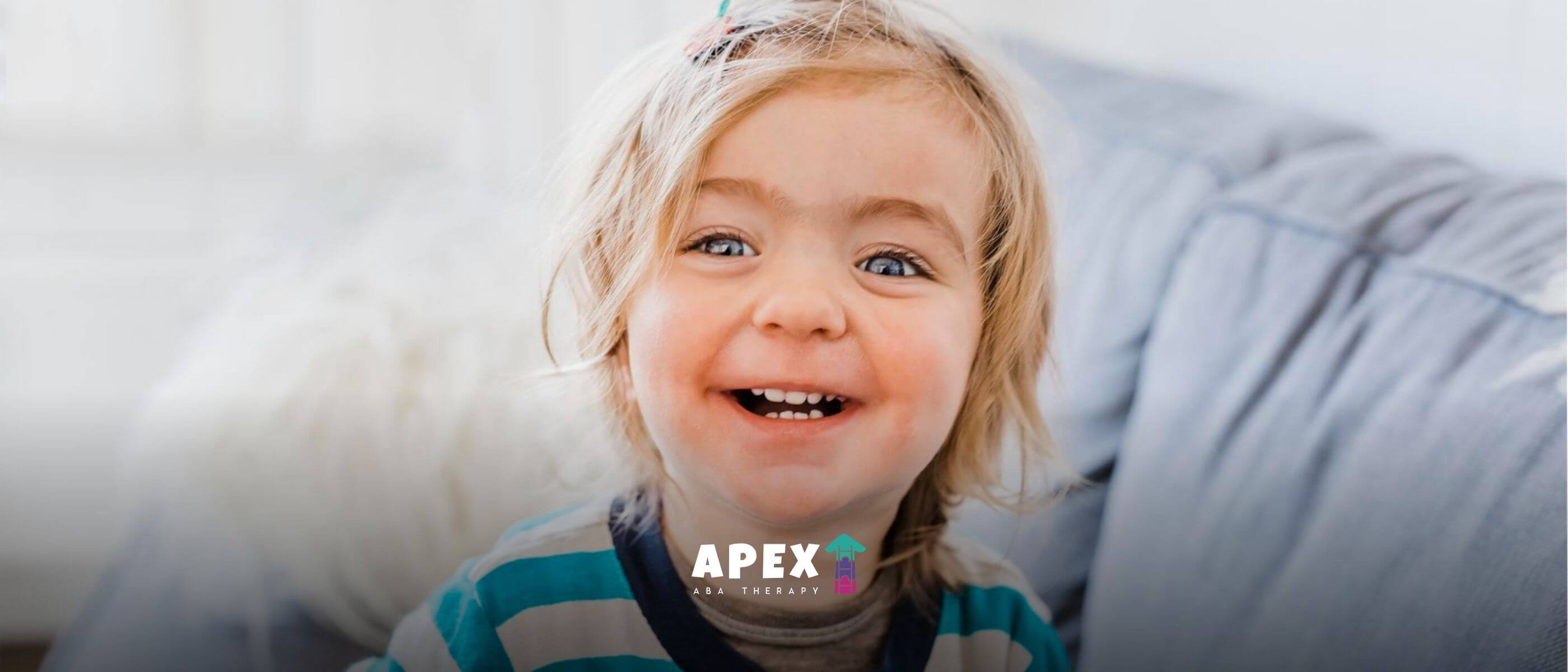
The Three Main Causes of Autism: Exploring Genetics, Environment, and Brain Differences
Autism is influenced by genetics, environmental factors, and brain differences. Learn how these three causes contribute to the development of the condition.

What are the Common Behaviors of Autism?
Autism behaviors can vary widely. Learn about the most common traits, from social difficulties to sensory sensitivities, and how ABA therapy can support progress.

What Age is Too Late for ABA Therapy?
It’s never too late to start ABA therapy. Discover how children, teens, and adults can still make meaningful progress with personalized ABA support.

Is In-Home ABA the Right Fit for Your Child? Here’s What You Need to Know
In-home ABA therapy offers a tailored approach to support your child’s development. Learn how it can improve key skills like communication, social interaction, and more.

How Families Can Make ABA Therapy a Positive and Successful Experience
Learn how families can ensure ABA therapy is a positive, successful experience. Discover tips for involvement, consistency, and support to make ABA effective.

Can a Child Have Autism and Still Talk Normally?
Can a Child Have Autism and Still Talk Normally?

What Are the Red Flags for Autism in a 2-Year-Old?
Autism Red Flags in 2-Year-Old Children | Apex ABA

Is Autism a Lifelong Condition?
Is Autism a Lifelong Condition? Understanding The Journey

Best Age to Start ABA Therapy & What Parents Should Know
Best Age to Begin ABA Therapy for Children | Apex ABA

What’s the Difference Between High-Functioning Autism and Asperger’s?
Difference Between High-Functioning Autism and Asperger’s

ABA Therapy Enhancing Social Skills: A Key to Improved Communication and Interaction for Children with Autism
How ABA Therapy Helps Children Build Social Skills

Misconceptions About ABA Therapy: Clearing Up the Myths
Common Misconceptions About ABA Therapy | Apex ABA

What Does It Mean to Be “On the Spectrum”?
What Does It Mean to Be on the Autism Spectrum? | Apex ABA
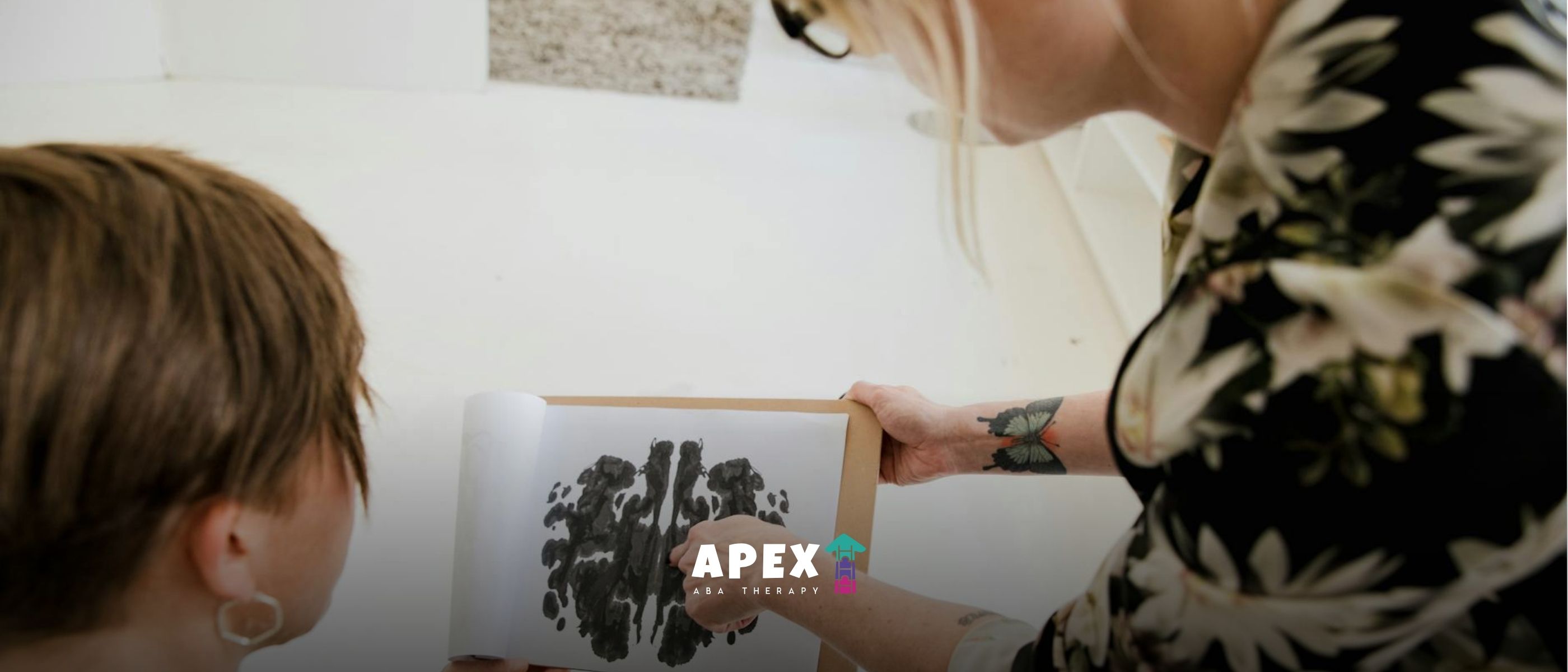
Understanding the Power of Functional Behavior Assessment ABA
Effective ABA Techniques for Behavioral Intervention

Discover How ABA Helps ADHD in Your Child’s Life
How ABA Therapy Helps Children with ADHD | Apex ABA

Life-Changing ABA Therapy Case Studies You Need to Know
Real Success Stories from ABA Therapy Journeys | Apex ABA

Can Children “Outgrow” Autism?
Can Children Outgrow Autism? Understanding the Facts
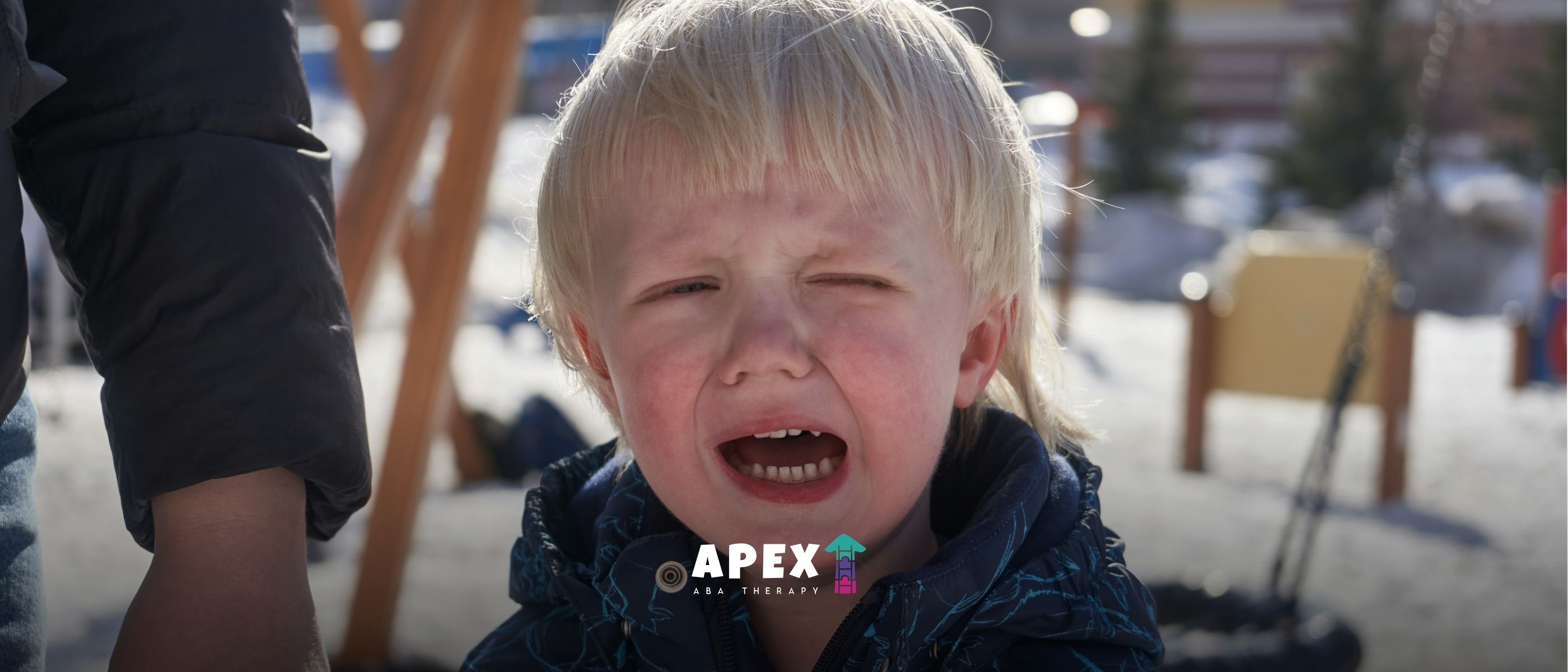
Is Autism a Mental Illness or a Developmental Disorder?
Mental Illness or Developmental Disorder Explained

Is Autism More Common in Boys Than Girls?
Autism in Boys vs Girls: What the Research Reveals

What is the Difference Between Autism and Sensory Processing Disorder?
Autism vs Sensory Processing Disorder Differences | Apex ABA

What's the Difference Between Autism and Speech Delay?
Autism vs Speech Delay & Key Differences Explained | Apex
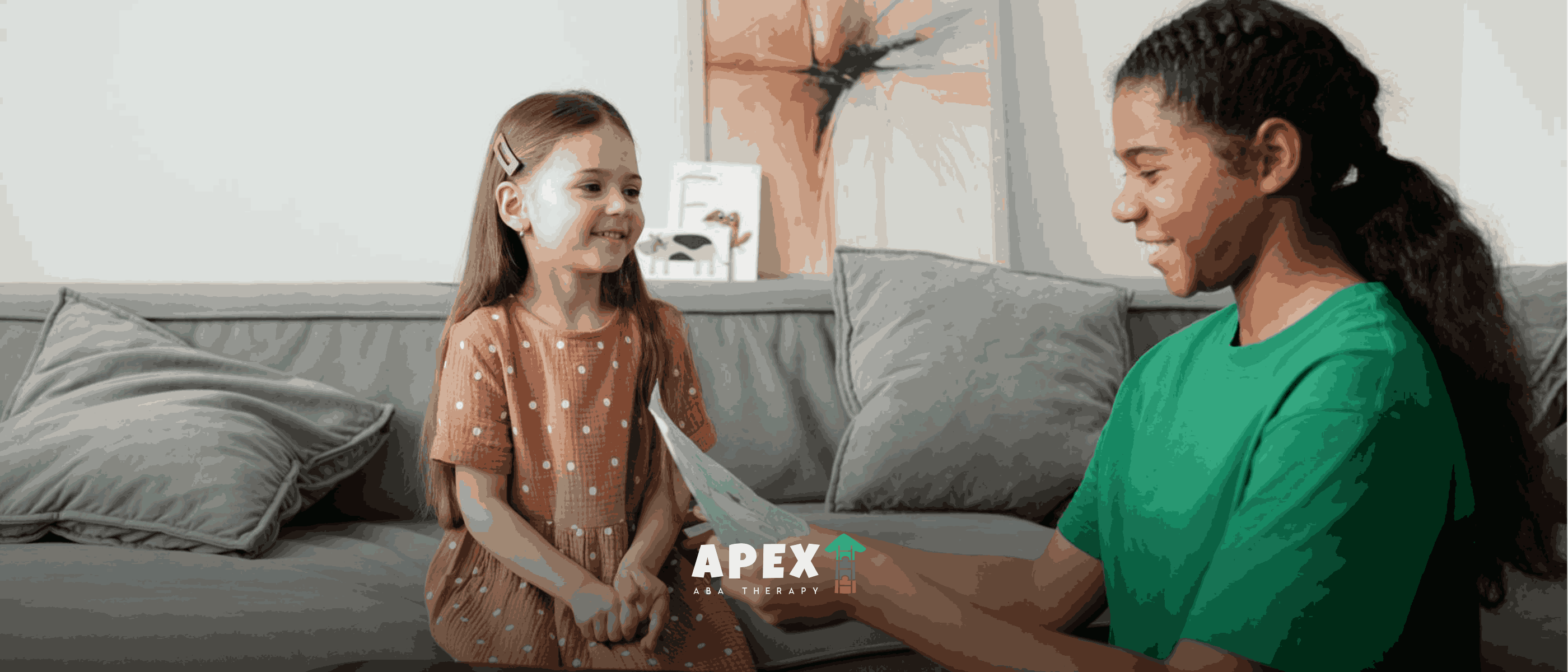
ABA Therapy in North Carolina: A Complete Guide for Families
Learn everything about ABA therapy in North Carolina, including services, costs, insurance coverage, and how to choose the best ABA provider in North Carolina.

ABA Therapy vs Preschool: Making the Right Choice Explained
Learn the key differences between ABA therapy and preschool to help you choose the best option for supporting your child’s early learning and development.

Which Personality Type Is Most Likely to Be Autistic?
Which Personality Type Is Most Likely to Be Autistic? | Apex ABA
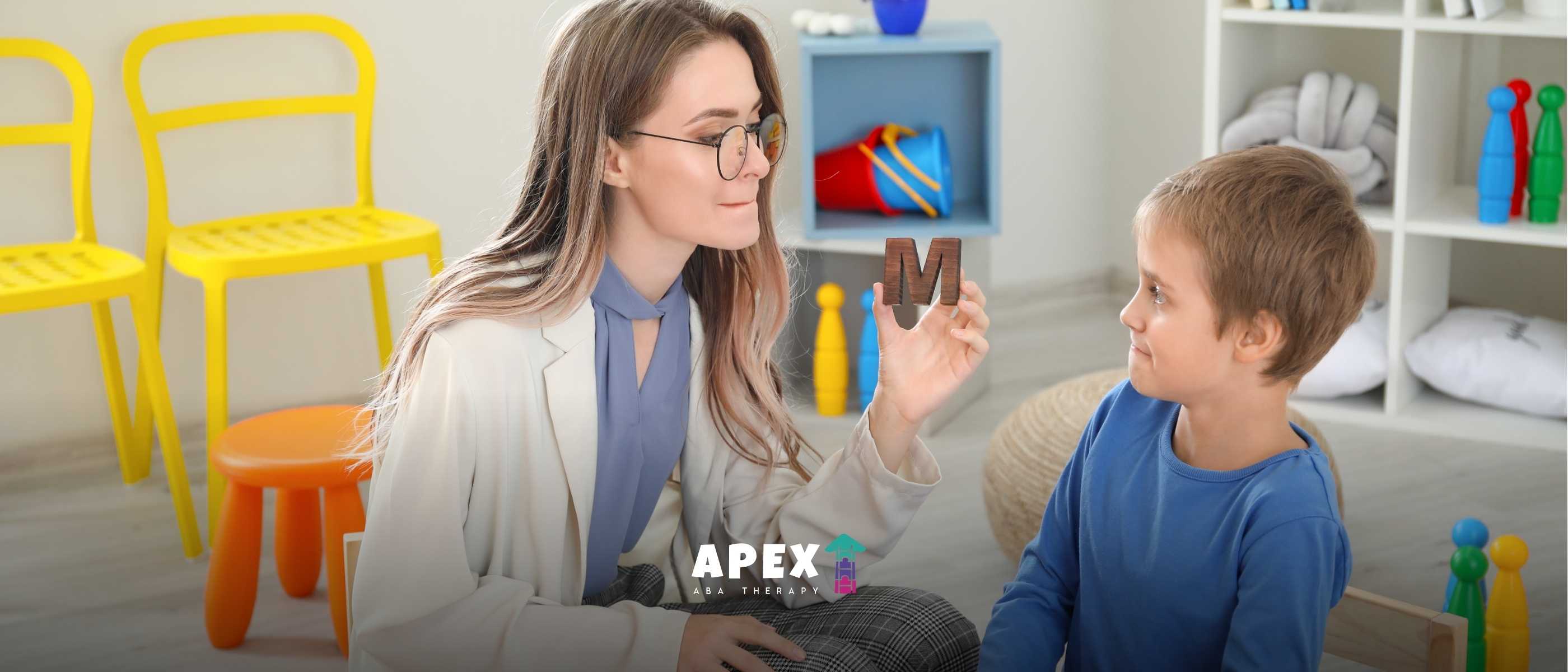
Why Consistency Matters: What Happens If ABA Therapy Ends Prematurely
What Happens If ABA Therapy Is Stopped Too Early? | Apex ABA

How Can You Gain an Autistic Person’s Attention? Tips for Meaningful Connection
How Can You Gain an Autistic Person’s Attention?

Sensory Sensitivity and Sixth Sense: What Autism Research Shows
Do Autistic People Have Sixth Sense? | Apex ABA

What Happens If Autism Is Left Untreated?
Can Autism Get Worse If Untreated? | Apex ABA

What Not To Do With An Autistic Child: Avoid These 10 Mistakes
What Not To Do With An Autistic Child? | Apex ABA

Coping with Regressive Autism: Tips for Parents
What is Regressive Autism? | Apex ABA

Do Autistic Kids Live with Parents Forever? Here’s the Reality
Do autistic kids live with parents forever? Discover the facts about independence and living arrangements in autism with expert-backed insights.

Red Flags in ABA Therapy: What Parents Must Watch For
What are the red flags in ABA therapy? Learn to identify warning signs for safe, effective autism treatment in this blog.

Can You Go from Level 3 Autism to Level 1? Is It Possible?
Can you go from level 3 autism to level 1? Learn about progress, therapy, and support options with expert help from Apex ABA.

Autism vs Introversion: How to Tell the Difference
Is it autism or just introversion? Learn the key differences and signs with expert insights from Apex ABA.
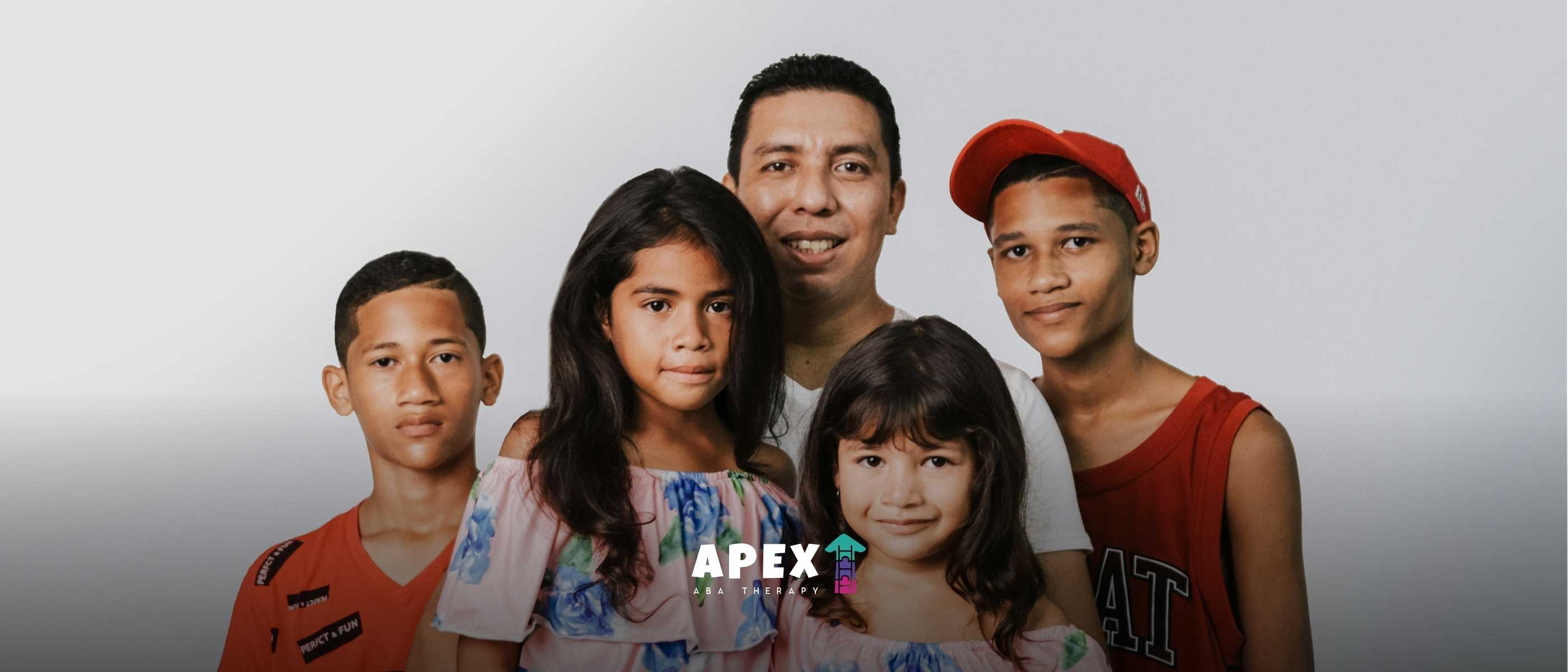
ABA for Managing Transitions: Tips to Ease Change for Kids
Learn how ABA for managing transitions helps children with autism handle change smoothly.

Understanding the 7 Dimensions of ABA for Better Outcomes
Discover the 7 Dimensions of ABA and how they can lead to better outcomes.

5 Unique Autistic Love Languages You Should Know About
Discover the 5 unique autistic love languages that can enhance your relationships.

Transforming Futures: Improving Lives of Kids with Autism
Discover how innovative strategies are focused on improving lives of kids with autism.

ABA Therapy Techniques for Addressing Repetitive Behaviors in Autism
Harnessing ABA Strategies to Tackle Repetitive Behaviors in Autism

The Role of ABA Therapy in Enhancing Communication Skills
Transforming Communication for Children with Autism Through ABA Therapy

How ABA Therapy Supports Effective Communication in Nonverbal Children
Unlocking Speech Through ABA: Transformative Paths for Nonverbal Children

How to Help Your Child Transfer Skills Learned in ABA Therapy to Real Life
Unlocking Real-World Success for Children in ABA Therapy

How ABA Therapy Helps Children Develop Better Organizational Skills
Empowering Children with ABA Therapy for Enhanced Organizational Skills

The Importance of Creating a Structured Routine in ABA Therapy
How Structured Routines Transform ABA Therapy for Autism

The Role of ABA Therapy in Developing Conflict Resolution Skills
How ABA Therapy Transforms Conflict Resolution Competence

The Importance of Generalization in ABA Therapy for Autism
Unraveling the Role of Generalization in Enhancing ABA Therapy Outcomes

Why ABA Therapy is Crucial for Parents of Children with Autism
The Transformative Impact of ABA Therapy on Families with Autistic Children

How to Involve Parents in the ABA Therapy Process
Maximize Parent Engagement in ABA Therapy for Better Outcomes

What are the Core Principles of ABA Therapy?
Exploring the Cornerstones of Applied Behavior Analysis

Why Communication is Key in ABA Therapy for Autism
The Crucial Role of Communication in ABA Therapy for Autism

Why ABA Therapy Works for Children with Autism Regardless of Severity
Effective ABA Interventions for All Levels of Autism

Why It’s Important to Maintain a Balanced Approach to ABA Therapy
Balancing Effectiveness and Ethics in ABA Therapy

The Role of ABA Therapy in Developing Adaptive Behavior Skills
Exploring How ABA Therapy Transforms Lives

The Benefits of Combining ABA Therapy with Speech Therapy
Maximizing Development with Integrated Therapy Approaches

What to Expect During an ABA Therapy Session
Demystifying ABA Therapy Sessions: A Comprehensive Overview

How ABA Therapy Enhances Cognitive Functioning in Children with Autism
Exploring the Influence of Applied Behavior Analysis on Autism Cognition

How ABA Therapy Helps Children with Autism with Transitions Between Activities
Easing Transitions for Children with Autism: The Role of ABA Therapy

How to Foster Cooperation Between Parents and Therapists in ABA Therapy
Building Effective Partnerships in ABA Therapy

The Role of Positive Reinforcement in ABA Therapy
Exploring the Impact of Positive Reinforcement in Modern ABA Therapy

Why ABA Therapy is Effective for Children of All Ages
Understanding the Reach and Impact of ABA Therapy Across Age Groups

How to Support Your Child’s Emotional Growth with ABA Therapy
Harnessing ABA Therapy for Enhancing Emotional Development in Children with Autism

The Role of ABA Therapy in Enhancing Peer Relationships for Children with Autism
Harnessing ABA Therapy to Boost Social Connections Among Autistic Children

How to Overcome Common Challenges in ABA Therapy
Navigating Hurdles in ABA Therapy: Strategies and Solutions

How to Manage Behavioral Expectations with ABA Therapy
Understanding Applied Behavior Analysis in Behavioral Management

How ABA Therapy Promotes Emotional Regulation in Children with Autism
Unlocking Emotional Balance: ABA Therapy's Role in Autism

How ABA Therapy Improves Social Skills in Children with Autism
Harnessing ABA Therapy to Enhance Social Competency in Autistic Children

The Role of ABA Therapy in Classroom Success for Children with Autism
Harnessing ABA for Academic and Social Growth in Autism

The Importance of Evaluating and Revising ABA Therapy Goals Regularly
Regular Evaluations: The Cornerstone of ABA Therapy Success

How to Choose the Right ABA Therapy Program for Your Child
Finding the Perfect ABA Therapy Fit for Your Child

The Role of Behavior Analysts in Implementing ABA Therapy
Understanding the Vital Contributions of Behavior Analysts in ABA Therapy

The Role of RBTs (Registered Behavior Technicians) in ABA Therapy
A Closer Look at the Essential Work of RBTs in ABA Therapy

What Makes ABA Therapy Effective for Different Learning Styles?
Unraveling the Flexibility and Effectiveness of ABA Therapy

Understanding the Importance of Data Collection in ABA Therapy
The Role of Data in Shaping Effective ABA Therapy

How ABA Therapy Helps with Toilet Training in Children with Autism
Unlocking Independence: ABA's Role in Autism Toilet Training

The Importance of Encouraging Natural Play in ABA Therapy
Revolutionizing ABA Therapy with Natural Play

How to Make the Most of ABA Therapy at Home
Enhancing ABA Therapy Practices Within Your Home

How to Make ABA Therapy Fun and Engaging for Children with Autism
Transforming ABA Therapy into a Fun Learning Journey

The Role of ABA Therapy in Addressing Verbal and Nonverbal Communication in Autism
Enhancing Communication Skills in Autism Through ABA Therapy

Understanding the Role of Family in ABA Therapy for Autism
The Crucial Impact of Family Engagement in Autism Therapy

How to Handle Setbacks and Challenges in ABA Therapy
Navigating Difficulties and Setbacks in ABA Therapy for Children

How ABA Therapy Can Help Children Build Stronger Relationships with Peers
Unpacking the Influence of ABA Therapy on Peer Relationships in Children

Understanding the Concept of Shaping in ABA Therapy
Demystifying Shaping Techniques in Applied Behavior Analysis

How ABA Therapy Enhances Independent Living Skills in Autism
Unlocking Independence: The Role of ABA Therapy in Autism
.jpg)
90+ Reading Statistics, Facts and Demographics
In this article, we will dive into 60 reading statistics that shed light on the importance of reading and its impact on different aspects of life.



